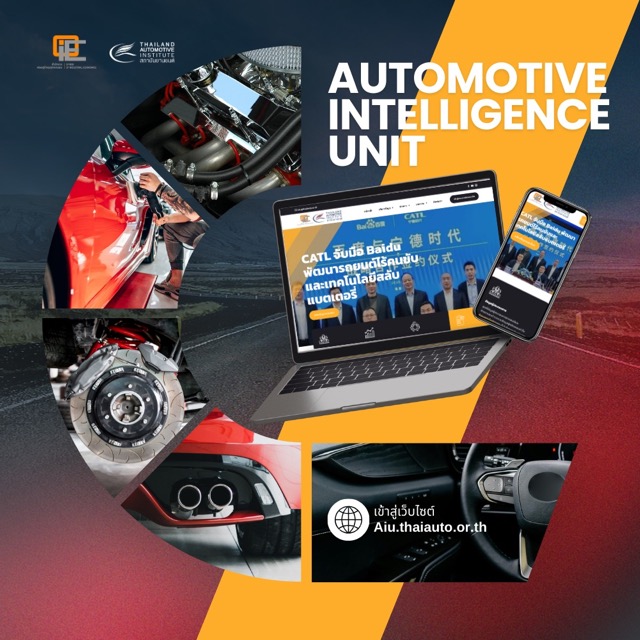Reduce development costs. It’s likely that this imperative is a high-level initiative at your company. It is a primary challenge for most manufacturers, and boils down to one of two things: saving money. In the world of heavy truck durability testing, the most successful companies and individuals will be able to save both time and money while maintaining the testing accuracy necessary to meet product development requirements.
One big problem manufacturers face when testing new heavy truck designs is that the traditional testing options are time-intensive. Fleet testing on the road can take years, and proving ground testing can take more than six months. By contrast, physical testing in the lab reduces the testing time dramatically- up to 75% in some cases. Test managers throughout the industry have assumed that controlled testing through laboratory operations can produce better and faster, but not always cheaper, results-until now.
Enter the MTS Heavy Truck Road Simulator development team. MTS engineers knew they had a challenge before them with this project. How could they take the technology used in the industry- standard spindle-coupled road simulator, which was originally designed to test passenger vehicles, and create a similar rig to test large-scale vehicles? For the uninitiated, the intuitive answer would be to “super size” it. For MTS, most engineers don’t trust their intuition, but they test their hypotheses. The MTS engineers discovered a unique solution to the problem, which has allowed MTS to create a cost-effective road simulation solution for heavy trucks and other large vehicle applications.
Up until the recent development of the new Model 329 Heavy Truck Road Simulator, the physical testing road simulators required large amounts of energy to run, so they were a costly alternative to road or proving ground testing. With the new design, energy costs are minimized, and manufacturers save both time and money in design validation. Good, fast, and cheap-manufacturers are no longer limited to the “choose two” adage-you can have all three.
The Model329 multi-axial spindle-coupled road simulator is the jewel in the crown of solutions for the heavy truck market. MTS has spent the last few years developing testing solutions for the heavy truck industry. However, entering the heavy truck market is not something taken lightly by the testing juggernaut. Mike Schulz, senior product manager, MTS, says: “We researched this market, and realized that there were many factors contributing to growth. New regulations, increased demand for driver comfort, as well as the need to maximize load efficiency were adding new development requirements for heavy truck manufacturers. At the same time, increasing fuel costs were substantially adding to the expense of proving ground and road testing. We knew it was time to expand our light-vehicle testing expertise to develop solutions to address the market need.” MTS looked to its engineers to come up with a suite of solutions for the heavy truck industry that addressed the increased complexity of testing requirements and reduced testing time and cost.
In the competitive heavy truck market, manufacturers to reduce development costs and, at the same time, comply with new regulations, expand into new markets, and take advantage of new technology that can improve productivity, such as using new materials and components reduce vehicle weight and allow for more cargo weight per load. All of these factors are driving the need for new vehicle designs, which in turn are creating a need for more testing associated with design validation. Normal expected lifetime of a heavy-duty truck platform is around 20 years. MTS found through its research that manufacturers estimated that they typically spent more than the original cost of the equipment over its lifetime in upgrades and improvements. More testing is done on the evolution of an existing truck than for new product development. Improvements of current products and solving field problems accounted for nearly half (48%) of testing requirements. Add to that the extended length of service for a typical heavy truck, and you begin to understand the demand for accurate and affordable durability testing. These vehicles are built to last far longer than average light vehicles. Durability is the key product characteristic for which heavy-duty trucks are designed, and as a result, manufacturers spend the largest percentage of their testing budget on durability testing.
One of the ways manufacturers test durability is with tire-coupled road simulators, or “four posters”. MTS leads the market in tire-coupled road simulators, with more MTS Model 320 systems in use than all other tire-coupled road simulators combined. MTS pioneered the four-poster technology, and has spent time refining it to meet the needs of various markets. In the heavy truck market, tire-coupled road simulators are primarily used to test frame-mounted components such as cabs, radiators, and fuel tanks. To test tractor-semi-trailer rigs, MTS has combined as many as 10 channels in one system.
Additional regulatory compliance is one of the factors forcing manufacturers to alter their product designs. One of the new regulations affecting truck design is the need to decrease stopping distance. This requirement is driving the redesign of front axle assemblies, which need to be validated for durability using a spindle-coupled road simulator such as the MTS Model 329 Heavy Truck (HT) road simulator. These spindle- coupled road simulators allow test engineers to reproduce the same truck spindle forces in the laboratory as on the proving ground. Simulating the proving ground in the laboratory using MTS Model 329 with heavy truck-rated wheel force transducers provides the design validation data in a more timely and cost-effective manner.
Regulations regarding substantially lower emissions standards for new vehicles have led manufacturers to include exhaust particulate traps in their exhaust systems. These traps need to be tested for durability on a multi-axial simulation table (MASTTM). MTS MASTs come in a range of standard types, and can be used to test a wide range of components including seats, fuel tanks, radiators, instrument panels, or engine mounts. Many heavy components are being designed smaller or with new materials in an effort to reduce total vehicle weight, and these new designs need to be validated on a MASTs. Additionally, with the increase in concern for driver comfort, MASTs will become more necessary to test components that contribute to the driver’s ride experience as well.
Manufacturers are also concerned with vehicle stability. Regulations regarding rollover avoidance have increased the need to test the vehicle rollover propensity. The MTS SWIFT 50 wheel force transducer, which was designed specifically for large vehicle applications, can measure the forces on the suspension during the extreme dynamic conditions that can cause vehicle instability. The SWIFT 50 sensor eliminates the need for specialized component instrumentation, which cuts instrumentation time from weeks to hours. It is a flexible solution that can be used in a laboratory to validate analytic models of vehicle stability, or quickly attached to a modified rim for data acquisition on the road or proving ground.
MTS is a complete provider of heavy truck testing solutions. It offers many solutions to address the physical testing needs of the heavy truck industry, including: heavy truck-rated MASTs, cab shakers, driveline test solutions, tire-coupled road simulators, spindle-coupled road simulators, SWIFT sensors, tire testing systems, and damper, elastomer and air spring testing equipment. Also, MTS has expertise in designing test systems for materials, component, and subcomponent testing for heavy truck applications.


